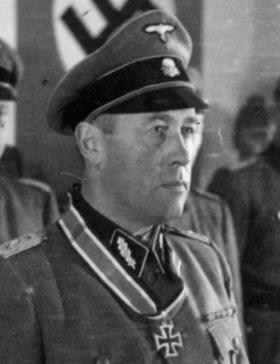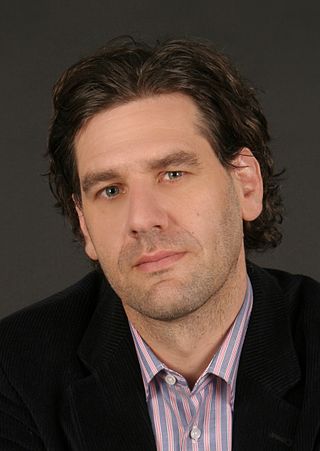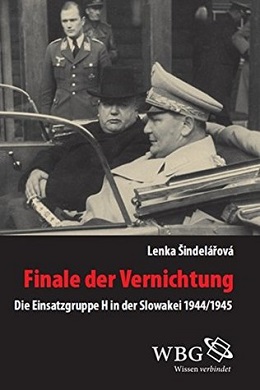External links
- Entry at the University of Stuttgart website
- Research Unit Ludwigsburg
Klaus-Michael Mallmann (born 3 November 1948, in Kaiserslautern) is a German historian at the University of Stuttgart.
Mallmann studied history, Sociology, Politics and German studies at the Saarland University. In 1979 he was awarded the Kurt Magnus Prize after working as a television journalist for Saarländischer Rundfunk from 1976 to 1987. He obtained his doctorate in 1980, with a study of the "beginnings of the mine workers' movement on the Saar (1848 - 1904)". He was an academic assistant at the Saarland university from 1988 to 1992, in a research project titled "Resistance and refusal in Saarland 1935 - 1945". Afterwards he worked at the Free University of Berlin on the research project "The Gestapo 1933 - 1945" under Professor Dr. Peter Steinbach. He qualified as a university lecturer in 1995 at the University of Essen with the study "Milieu and Avant-garde. On the social history of German communism 1918 - 1933". He taught in Essen as lecturer for modern history. He transferred to the university of Stuttgart in 2001. Other research projects focused on the time of National Socialism, including "Order police, the War in the East and the murder of the Jews" as a postdoctoral researcher at the cultural studies institute of the academic centre in North Rhine-Westphalia, and a project at the University of Flensburg, "The perpetrators of the Shoah. Norms and behaviour in the process of the extermination of the Jews".

Helmut Rix was a German linguist and professor of the Sprachwissenschaftliches Seminar of Albert-Ludwigs-Universität, Freiburg, Germany.

The Free Workers' Union of Germany was an anarcho-syndicalist trade union in Germany. It stemmed from the Free Association of German Trade Unions (FDVG) which combined with the Ruhr region's Freie Arbeiter Union on September 15, 1919.

The 200 days of dread was a period of 200 days in the history of the Yishuv in British Palestine, from the spring of 1942 to November 1942, when the German Afrika Korps under the command of General Erwin Rommel was heading east towards the Suez Canal and Palestine.

Gustav Lombard was a high-ranking member in the SS during World War II. During the war, Lombard commanded 8th SS Cavalry Division Florian Geyer and the 31st SS Volunteer Grenadier Division. He was a recipient of the Knight's Cross of the Iron Cross of Nazi Germany for so-called "anti-partisan" operations around Kovel which involved killing of civilians and burning down villages.

Erich Ehrlinger was a member of the Nazi Party and SS. As commander of Special Detachment 1b, he was responsible for mass murder in the Baltic states and Belarus.

Jochen Böhlerlisten is a German historian, specializing in the history of Eastern Europe in the 19th and 20th century, especially the World Wars, the Holocaust, nationality and borderland studies. He is the recipient of several international awards. and known to a larger audience due to frequent appearances in TV productions and articles in national newspapers such as, for example, Frankfurter Allgemeine Zeitung or DIE ZEIT. His main thesis on the beginning of WWII and the end of WWI in Eastern Europe has been discussed vividly in German, English, and Polish academic circles.

The Intelligenzaktion Pommern was a Nazi German operation aimed at the eradication of the Polish intelligentsia in Pomeranian Voivodeship and the surrounding areas at the beginning of World War II. It was part of a larger genocidal Intelligenzaktion that took place across most of Nazi-occupied western Poland in the course of Operation Tannenberg, purposed to install Nazi officials from SiPo, Kripo, Gestapo and SD at the helm of a new administrative machine.
Walter Braemer was a general in the Reichswehr and the Wehrmacht and a high-ranking SS commander during the Nazi era. He was a Nazi criminal responsible for mass murders of the civilian population of Bromberg/Bydgoszcz in Poland at the outset of the Second World War, and later for crimes against humanity in the Holocaust in the Soviet Union. He escaped prosecution and punishment after the war despite having been held for 2½ years as a prisoner of war by the British.

Franz Manfred Wuketits was an Austrian biologist, university teacher and epistemologist. He wrote extensively on epistemology, the history and theory of biology, evolution theory, evolutionary ethics, evolutionary epistemology and sociobiology.
Heinrich Otto Seetzen, called Heinz Seetzen, was a German jurist, SS-Standartenführer and police colonel. Seetzen was a perpetrator of the Holocaust, responsible for the mass murder of civilians in Ukraine and in Belarus.
Ludwig Eiber is a German historian and author. He is widely acknowledged as an expert on the post-World War II Allied war crimes trials of the Nazis. In particular, he has expertise in the Dachau trials.

Lorenz Hubert Weinrich is a German historian.
Carltheo Zeitschel also Carl Theo,, was a German physician, diplomat, Nazi functionary and SS-major (1940).
Gerd R. Ueberschär is a German military historian who specialises in the history of Nazi Germany and World War II. He is one of the leading contributors to the series Germany and the Second World War and, together with Rolf-Dieter Müller, is the author of Hitler's War in the East 1941−1945: A Critical Assessment. Both works have been published in English translations.
Jürgen Matthäus is a German historian and head of the research department of the United States Holocaust Memorial Museum. He is an author and editor of multiple works on the history of World War II and the Holocaust. Matthäus was a contributor to Christopher Browning's 2004 work The Origins of the Final Solution.
Gerhard Hirschfeld is a German historian and author. He was director of the Stuttgart-based Bibliothek für Zeitgeschichte / Library of Contemporary History, and has been a professor at the Institute of History of the University of Stuttgart since 1997. In 2016 he also became a visiting professor at the Institute for International Studies, University of Wuhan/China.
Stefan Breuer is a German sociologist who specializes in the writings of Max Weber and the German political right between 1871 and 1945.

Finale der Vernichtung. Die Einsatzgruppe H in der Slowakei 1944/1945 (2013) is a book by Czech historian Lenka Šindelářová based on her doctoral thesis at the University of Stuttgart. It was also published in Czech as Einsatzgruppe H: působení operační skupiny H na Slovensku 1944/1945 a poválečné trestní stíhání jejích příslušníků (2015).
Günther Binding is a German art historian and retired professor of art history and urban conservation at the University of Cologne.
Matthias Untermann is a German art historian and medieval archaeologist.